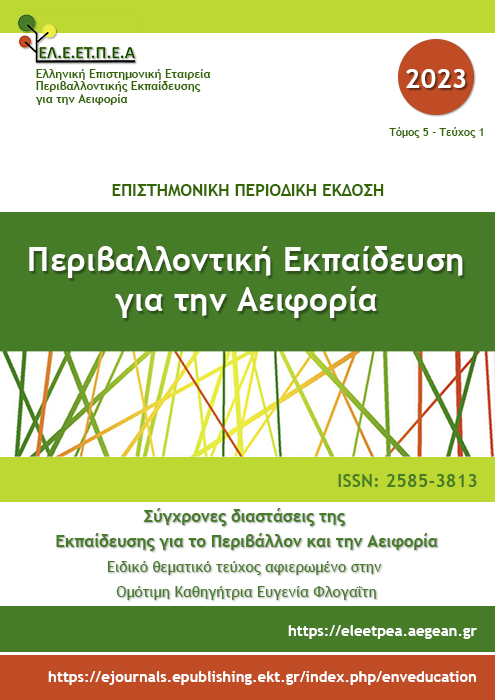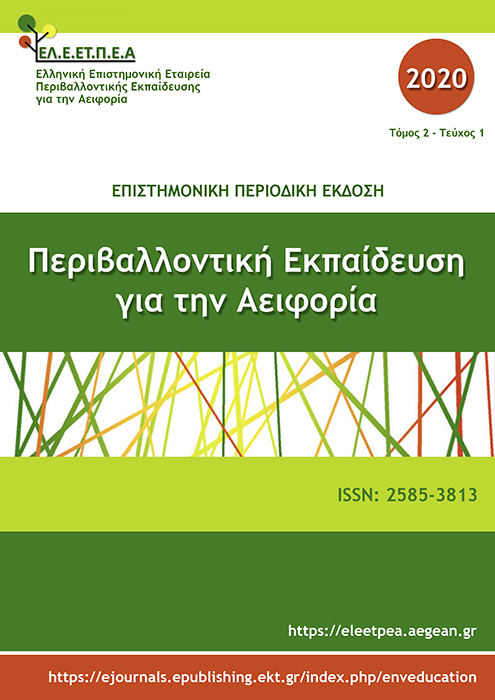Το αειφόρο σχολείο ως όραμα και προοπτική για τη σύγχρονη εκπαίδευση
Abstract
Το Αειφόρο Σχολείο παραπέμπει σε έναν δυναμικό σχολικό οργανισμό, ο οποίος εργάζεται συνολικά προκειμένου να διερευνήσει την κουλτούρα του και να βελτιώσει τις καθημερινές δομές και λειτουργίες του σύμφωνα με το όραμα και τη φιλοσοφία της έννοιας της αειφορίας. Τι ακριβώς, όμως, προτείνει το αειφόρο σχολείο; Ποιες είναι οι βασικές του αρχές; Ποια είναι τα κυριότερα χαρακτηριστικά που αποτυπώνουν τη φιλοσοφία του; Πώς αποτυπώνεται η φιλοσοφία του αειφόρου σχολείου στην καθημερινή εκπαιδευτική πράξη; Διαφέρει το αειφόρο σχολείο από το οικολογικό και το πράσινο σχολείο και σε τι συνίσταται η διαφορά τους; Πώς αξιολογούμε τη δράση και τη συμμετοχή των μαθητών σε ένα τέτοιο πλαίσιο και πώς γίνεται αντιληπτός ο ρόλος των εκπαιδευτικών; Ποιος είναι ο ρόλος όλων των εμπλεκομένων στην εκπαιδευτική διαδικασία μιας σχολικής κοινότητας και ποια είναι η σχέση που διαμορφώνεται με την τοπική κοινωνία; Πώς το αειφόρο σχολείο ενθαρρύνει τη λειτουργία κοινοτήτων μάθησης και πρακτικής και πώς ένας εκπαιδευτικός οργανισμός μετασχηματίζεται από γραφειοκρατικό ίδρυμα μετάδοσης γνώσεων σε δια βίου οργανισμό μάθησης;
Article Details
- Zitationsvorschlag
-
Κάτσενου Χ. (2023). Το αειφόρο σχολείο ως όραμα και προοπτική για τη σύγχρονη εκπαίδευση . Περιβαλλοντική Εκπαίδευση για την Αειφορία, 5(1), 177–188. https://doi.org/10.12681/ees.35780
- Rubrik
- Articles

Dieses Werk steht unter der Lizenz Creative Commons Namensnennung - Nicht-kommerziell - Weitergabe unter gleichen Bedingungen 4.0 International. Οι συγγραφείς διατηρούν τα πνευματικά δικαιώματα και παρέχουν στο περιοδικό το δικαίωμα της πρώτης δημοσίευσης μαζί με την αδειοδότηση της εργασίας με CC-BY-NC-SA, που επιτρέπει σε άλλους να μοιράζονται αυτή την εργασία με αναγνώριση του συγγραφικού δικαιώματος και την αρχική δημοσίευση σε αυτό το περιοδικό.




